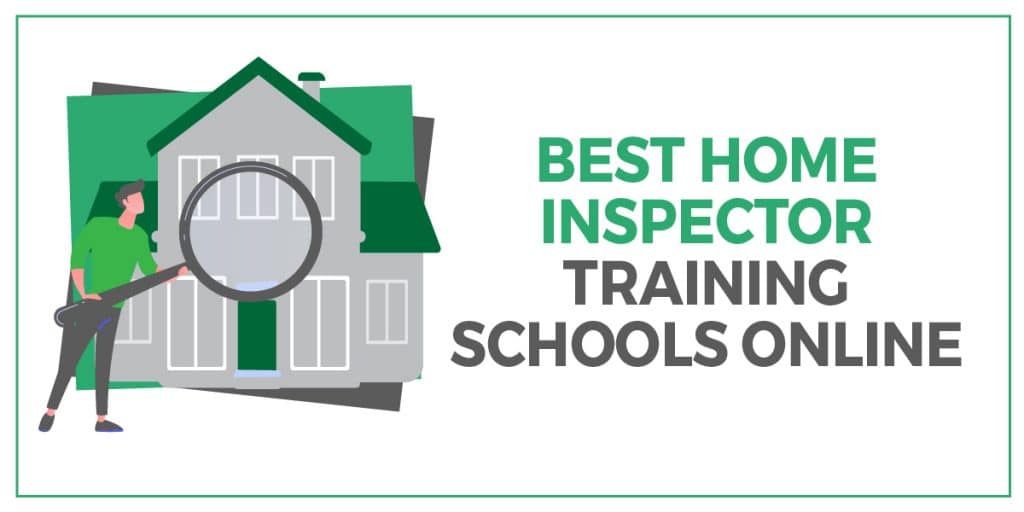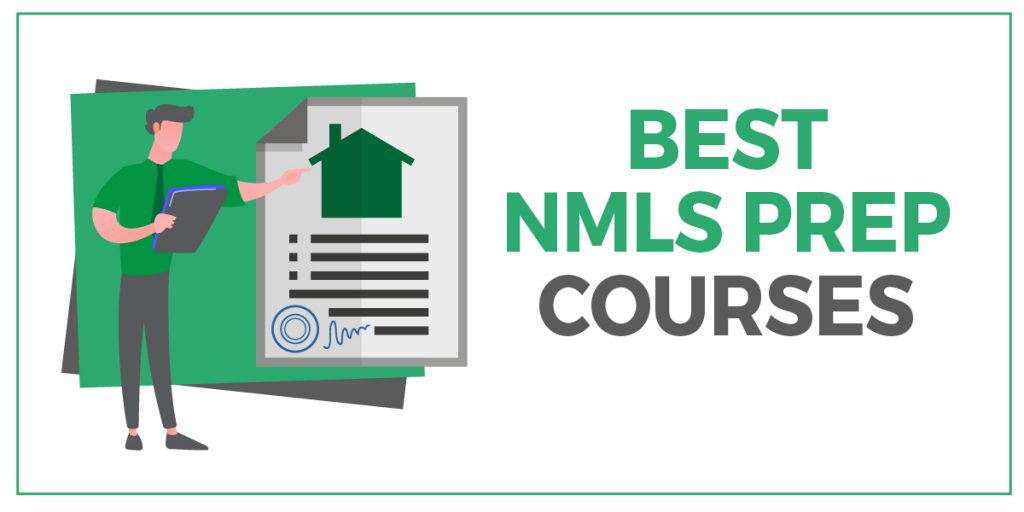The process of becoming a Connecticut real estate agent is simple if you plan it out ahead of time. Luckily, this state has much lighter requirements than others, but you’ll still need to put in some pre registration work. Specifically, you need to meet an education requirement, submit some paperwork, and pass an exam. After that, you’ll be ready to enter the Connecticut real estate market— working in a region where real estate agents can make over $75,000 a year.
I’ve researched all the requirements for becoming a Connecticut real estate agent. Keep reading to learn everything you need to know in order to successfully get your real estate salesperson license and start working immediately!
Why Choose a Career in Real Estate in Connecticut?
Real estate professionals in Connecticut enjoy the benefits of a robust market with high earning potential. The state’s strong economy, coupled with its scenic beauty and quality of life, makes it an attractive place for new homeowners and investors alike. As a real estate agent, you’ll have the chance to carve out a niche in this competitive market, build lasting relationships with clients, and contribute to the growth and development of your community.
Prerequisites for a Connecticut Real Estate License
Before embarking on your journey to becoming a licensed real estate agent in Connecticut, it’s important to understand the prerequisites. Fortunately, the state has streamlined requirements, making the initial steps straightforward. To qualify for the Connecticut real estate exam, you must:
- Be at least 18 years of age.
- Have a high school diploma or equivalent.
- Complete the mandatory pre-licensing education.
Connecticut Real Estate School and Education
“The good news is that prerequisites are fairly light in Connecticut; most of what needs to be done is simple work that can be easily accomplished if you’re willing to put in the time.”
Unlike other states, Connecticut doesn’t require you to have a college degree before applying for the real estate exam. Instead, they ask you to complete a 60 hour Real Estate Principles and Practices course. Doing so proves that you possess the minimum amount of knowledge required by the State of Connecticut Department of Consumer Protection Real Estate Commission. Courses can be taken as a live, in-person, or virtual-live classroom.
This 60 hour course covers a wide range of real estate topics. The CT Realtor website has a full list, but some of the major subjects include real estate law, home ownership, and real estate brokerage. Completing this course will demonstrate to the state that you have complete knowledge of the required real estate concepts.
CT Realtor doesn’t currently offer these courses, but they can be taken at a number of locations. If you’re interested, look into local community colleges, realtor boards, and real estate offices. In fact, you can use this tool to find courses near you.
It should be mentioned that this course is still worth your time even if you aren’t planning to become a real estate agent. That’s because it will ensure that you’re well informed about the practice of buying and selling your home.
Paperwork and Forms
To progress towards taking your real estate exam, you’ll need to submit two key documents:
- A certificate of completion for the 60-hour pre-licensing course.
- A notarized application to PSI, the testing service, declaring your intent to take the exam.
Acquiring both of these is very simple and quick if you go through the right channels.
First you need to prove that you completed the 60 hour course. You should receive a course certificate shortly after finishing— that will be sufficient proof and must be submitted to the PSI Exams website. Doing so proves that you have the basic competency required to sit for the real estate state licensing exam.
Next, you need to submit a notarized application to PSI declaring your intent to take the test. This serves as proof of your application when scheduling an exam date. Visit this page to see more detailed information on what’s required and to find the registration form.
Steps to Getting Your Real Estate License in Connecticut
Schedule the Exam
Now that you’ve completed all of your pre registration tasks, it’s time to schedule your real estate license exam. Unlike other states, you can’t pick an exam date before turning in all your paperwork. Make sure you do that as quickly as possible so you can pick a date that works best for you.
You’ll be sent an Exam Eligibility Postcard after you’ve been approved to take the test, with detailed instructions on how to schedule your examination.
Check the PSI Exam website for more detailed information on how to schedule your Connecticut real estate license exam.
Detailed Licensing Process
The licensing process in Connecticut is a multi-step journey that requires careful planning and attention to detail. Here’s a step-by-step guide to help you navigate the process:
- Complete the required 60-hour pre-licensing course.
- Submit your course completion certificate and notarized application to PSI.
- Schedule and pass the Connecticut real estate exam.
- Apply for your real estate license with the Connecticut Department of Consumer Protection.
- Choose a brokerage to work with and register your license with the state.
Exam Preparation and Tips
Preparing for the Connecticut real estate exam demands a strategic approach. Here are some tips to help you study effectively:
- Create a study schedule that allows you to cover all topics thoroughly.
- Utilize various study resources, including textbooks, online real estate courses, and practice exams.
- Focus on understanding concepts rather than memorization.
- Join study groups or find a study partner for mutual support.
For a comprehensive list of study materials and resources, consider visiting authoritative sites such as the National Association of REALTORS® or the Connecticut Department of Consumer Protection’s Real Estate Commission page.
Application Process for the Real Estate Exam
The application process for the real estate exam involves several steps, each important to ensure your eligibility:
- Ensure all your paperwork, including the pre-licensing course certificate and application, is complete and accurate.
- Pay the necessary fees associated with the application and exam, which can be found on the PSI Exams website.
- Follow the instructions provided by PSI carefully to avoid any delays in your application process.
Connecticut Real Estate Exam
The Connecticut real estate exam is split up into 2 parts that are taken on different dates. You need to pass both of them, and your results are valid for 1 year after completion. It costs $65 to register for each part of the test.
Part 1: General Real Estate Principles and Practices
The first part of the exam tests your understanding of general real estate principles. It features 80 questions across 11 subjects, reflecting the core aspects of real estate knowledge. You are allotted 120 minutes to complete this section. To help you acclimate to the testing format, a 15-minute tutorial is provided before the exam begins, as the test is administered via computer.
Part 2: Connecticut-Specific Real Estate Knowledge
The second part focuses on Connecticut-specific real estate laws and regulations. This section contains 30 questions and must be completed within 45 minutes. The content is concentrated on four major areas pertinent to practicing real estate within the state.
In addition to these sections, you may encounter 5-10 experimental questions. These are not scored and are used to inform future exam updates. They also do not count towards your allotted exam time.
To pass, you must achieve a score of at least 70% on both parts of the exam. Once passed, it’s important to register as a real estate agent within a year, as your exam results are valid for this duration.
Post-Exam Steps: Continuing Education in Real Estate
After passing the exam, the next step is to fulfill the continuing education requirements set by the Connecticut Department of Consumer Protection. There are two paths you can take:
- Continuing Education Classes: Complete 12 hours of continuing education (CE) from an accredited institution. This includes two mandatory 3-hour courses on real estate law and fair housing, plus an additional 6 hours of elective courses to ensure your knowledge remains current.
- Connecticut Real Estate CE Exam: Alternatively, you can opt to take a 40-question CE exam through PSI Exams. This exam covers material similar to the state licensing exam and may be preferred by those who wish to complete their CE requirements more expediently.
The choice between classroom learning and taking the CE exam depends on your personal learning style and schedule preferences. For more information on continuing education requirements and options, visit the Connecticut Department of Consumer Protection – Real Estate website.
Connecticut Real Estate Market Trends
The Connecticut real estate market reflects a dynamic interplay of traditional charm and modern demands. The state has witnessed a robust demand for residential properties, with a notable uptick in suburban and rural home sales. This trend is partly driven by individuals seeking more space and a higher quality of life, a demand that Connecticut’s varied landscapes can satisfy.
Seasonality impacts the market, with spring and summer being peak sales periods. However, the market’s resilience is evident in its stability throughout the year. Connecticut’s strategic location, especially its proximity to New York City, enhances its appeal to commuters and contributes to a steady real estate market.
The state’s real estate market is diverse, with historic homes and new, eco-friendly constructions drawing significant interest. The luxury market, particularly in areas like Greenwich, remains robust, while regions offering more affordable options attract first-time homebuyers.
Here are some current statistics and forecasts for the Connecticut real estate market in 2023:
- Forbes reports a significant decrease in new home listings in Connecticut, with numbers down by more than 26% in the first half of 2023 compared to the same period in 2022.
- Norada Real Estate Investments provides a forecast for Connecticut Metropolitan Statistical Areas (MSAs), predicting a 1.4% increase in Hartford by September 2023, and a 3.4% increase by November 2023, with a 6.7% increase by August 2024. Bridgeport is expected to see a 1.2% increase by September 2023.
- According to Redfin, as of September 2023, there were 8,206 homes for sale in Connecticut, which is a 38.5% decrease year over year.
- Houzeo suggests that mortgage rates in Connecticut may stabilize between 6% to 6.5% in 2023, and the number of home sales may decrease slightly.
- A report discussed by WFSB ranks Connecticut real estate markets among the worst in the country, which could have various implications for the market trends in the state.
Case Studies of Successful Real Estate Agents in Connecticut
- The Digital Pioneer: Jessica Taylor revolutionized the Hartford real estate scene by integrating cutting-edge virtual tour technology. Her innovative approach allowed clients to explore properties from the comfort of their homes, a service that became indispensable during the pandemic. Jessica’s forward-thinking methods have earned her recognition as a leader in Connecticut’s real estate market.
- The Community Advocate: Michael Brown has built a reputation in New Haven for his commitment to community development and affordable housing. His collaborative efforts with local authorities and developers have led to impactful housing solutions. Michael’s dedication to social responsibility in real estate has garnered him accolades and a client base that values community-centric investments.
- The Market Strategist: Lauren Davis from Stamford uses her economic expertise to offer clients comprehensive market analyses. Her insights into when to buy or sell have proven invaluable. Lauren’s blog, which provides in-depth analyses of Connecticut’s real estate market trends, is a go-to resource for clients and industry professionals alike.
FAQs
You must be at least 18 years old, have a high school diploma or GED, and complete a 60-hour Real Estate Principles and Practices course.
No, a college degree is not required. However, you must complete the pre-licensing education course from an accredited real estate school.
Accredited schools can be found through the Connecticut Department of Consumer Protection’s website or by visiting the Connecticut REALTORS® website for a list of approved education providers.
The course covers a range of topics including property law, real estate financing, contracts, agency, and property management.
After completing your pre-licensing education, you must submit an application and your course completion certificate to PSI, the company that administers the exam, to schedule your test.
The exam must be taken in person at a PSI testing center, but you can register and schedule your exam online.
You must score at least 70% on both the national and state portions of the exam to pass.
It costs $65 to register for each part of the exam, with the exam consisting of two parts: the national portion and the state-specific portion.
If you don’t pass, you can reschedule to take the exam again. There is no limit to the number of times you can retake the exam, but you must pay the registration fee each time.
After passing the exam, you must apply for your license through the Connecticut Department of Consumer Protection, submit the appropriate fees, and choose a brokerage to work with, as Connecticut requires agents to be sponsored by a licensed broker.















